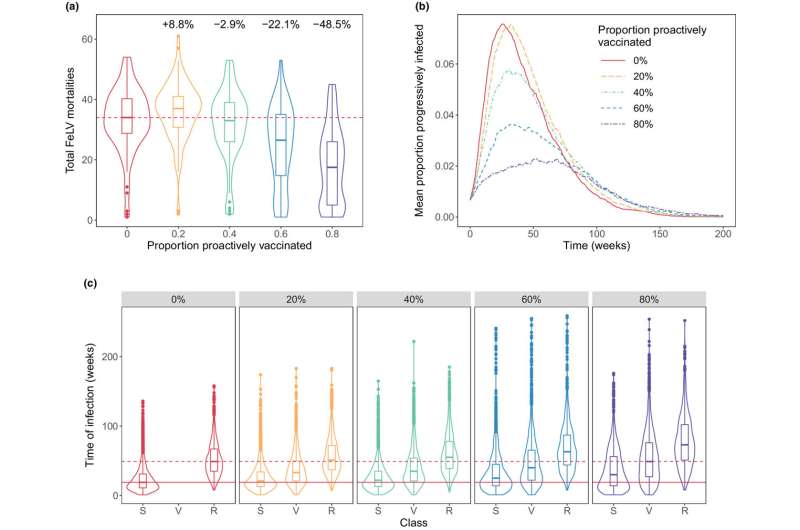In Florida panther, multi-pronged approach critical to disease management

The Florida panther, an endangered subspecies of mountain lion found exclusively in southern Florida, is being affected by a viral disease called feline leukemia virus (FeLV). FeLV can spread from domestic cats and cause large outbreaks in panthers, resulting in severe illness or death. While a domestic cat vaccine is available, it has uncertain efficacy in panthers. New research led by the University of Minnesota studies FeLV management and has implications for infectious disease management, such as COVID-19 in humans.
In a recent study in the Journal of Applied Ecology, Meggan Craft, professor in the University of Minnesota's College of Biological Sciences, and Marie Gilbertson, DVM/Ph.D. student in the U of M's College of Veterinary Medicine, partnered with colleagues at Colorado State University and the Florida Fish and Wildlife Conservation Commission to determine how to optimize management of FeLV to help conserve the Florida panther. With only around 200 panthers remaining in the wild, controlling FeLV is critical for conservation efforts.
The researchers used computer simulations to safely and ethically test several available interventions in simulated FeLV outbreaks in panthers, and found the most efficient FeLV management strategies combined preventive vaccination prior to an outbreak with reactive interventions after an outbreak has started, such as temporary removal of infectious panthers. Using a combination of approaches was more effective at reducing panther mortalities than using any singular intervention.
Vaccine efficacy also had important impacts on outbreak outcomes. Without accompanying reactive interventions, inadequate preventive vaccination actually increased the number of panther mortalities in some circumstances. The researchers believe this is a result of simulated partial immunity—when vaccination rates were low, partially immune individuals appeared to allow outbreaks to persist rather than fade out.
"Our research highlights the multi-pronged management approaches needed to curtail disease spread," said Craft. "Imperfect vaccine efficacy means additional layers of protection are necessary, though preventive vaccination was still critical for reducing the probability of large outbreaks and loss of this endangered species."
Based on their simulations, the team concluded that panther managers should continue to use preventive vaccination to reduce the chance of a large outbreak of FeLV. Should an outbreak occur, reactive interventions should be deployed to most effectively reduce mortalities.
"While this project was focused on Florida panthers, our findings are relevant to other species," said Gilbertson. "There is no silver bullet in disease management and it can take multiple complementary interventions to control outbreaks."
More information: Marie L. J. Gilbertson et al, Paradoxes and synergies: Optimizing management of a deadly virus in an endangered carnivore, Journal of Applied Ecology (2022). DOI: 10.1111/1365-2664.14165
Journal information: Journal of Applied Ecology
Provided by University of Minnesota


















